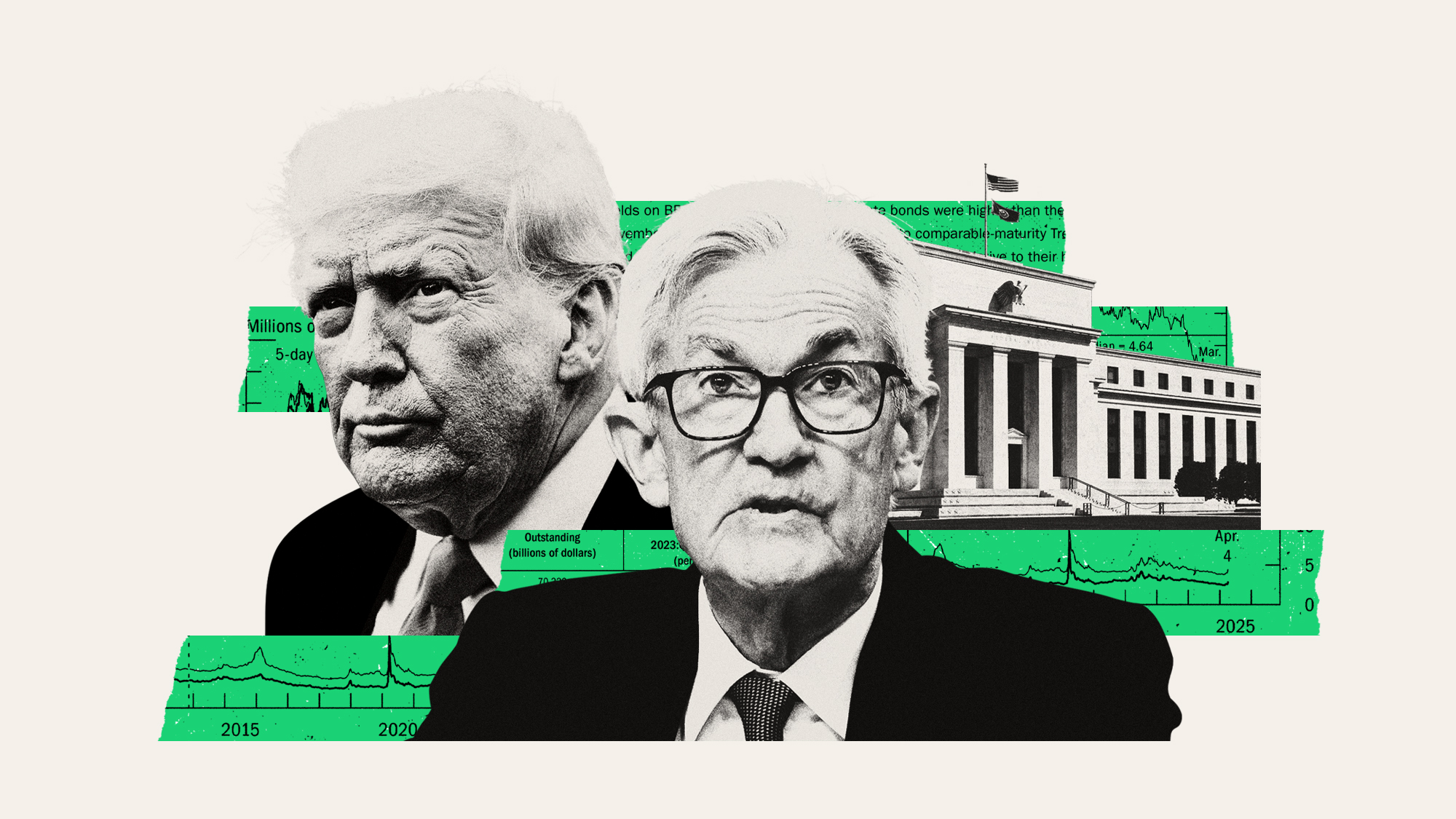Why everyone’s talking about Monzo
London-based digital bank smashes past £2bn following fresh funding from US

A free daily email with the biggest news stories of the day – and the best features from TheWeek.com
You are now subscribed
Your newsletter sign-up was successful
App-based bank Monzo has doubled its valuation to more than £2bn in just eight months, after raising a further £113m of funding.
The UK-based mobile-only bank launched in 2015 and now has two million users. And Monzo founder and chief executive Tom Blomfield, 33, is aiming to top the three million customer mark after the fintech start-up arrives in the US later this year.
What happened?
The Week
Escape your echo chamber. Get the facts behind the news, plus analysis from multiple perspectives.

Sign up for The Week's Free Newsletters
From our morning news briefing to a weekly Good News Newsletter, get the best of The Week delivered directly to your inbox.
From our morning news briefing to a weekly Good News Newsletter, get the best of The Week delivered directly to your inbox.
Monzo raised an extra £113m of investment from US investors to expand its business across the pond. Some eight months since its last round of fundraising, the smartphone bank was backed by start-up accelerator YC Continuity, says the Financial Times.
YC Continuity helped launch Dropbox and Airbnb, says the newspaper. It is responsible for a share of Monzo’s new investment, along with existing backers of the bank Accel, Orange and Stripe.
Anu Hariharan of YC Continuity says Monzo is the first of its kind to redefine the modern banking experience for customers and claims the app-based bank is well on its way to scaling revenue “rapidly and sustainably”, reports the FT.
The new funding means Monzo has “leapfrogged” Revolut, a rival app-based bank, to become the second-wealthiest fintech start-up in the UK, says The Guardian. The first is the small business lender OakNorth.
A free daily email with the biggest news stories of the day – and the best features from TheWeek.com
Monzo launched in the UK four years ago. Initially it offered only a pre-paid debit card managed through a mobile phone app. Two years later, says the FT, it secured a full banking licence and started to offer current accounts.
The bank’s genius, according to The Guardian, lies in realising that “for many millennials, money is a stressful business”. While stopping short of providing a specific avocado toast tracking feature, the app allows users to split bills with friends and keep tabs on types of spending.
Customers can set monthly budgets for categories such as nights out and groceries, according to the paper. Current accounts can be set up from home, with customers uploading a photo of an identity document and recording a brief “selfie video” to prove their identity further.
In a stroke of marketing genius, according to The Guardian, the firm provides customers with an electric pink bank card that’s highly visible when it’s used and distinctive.
What has the response been?
The FT says that news of a fresh round of investment in Monzo has been taken as an encouraging sign that investors are “still keen to back upstart financial technology companies”. However, the newspaper points out that the bank’s decision to seek double the funding comes surprisingly quickly after its last round of fundraising.
The fact the bank sought more backing after just eight months, and when it was already “well-capitalised”, could be a sign that the team who run it and their advisers believe the currently benign environment for investment will soon come to an end, warns the FT.
News that the bank would be opening in the US triggered positive reactions last week. Thousands of people signed up to Monzo’s American waiting list, according to Tristan Thomas, head of marketing.
The Guardian recalls that Monzo created a “whiff of exclusivity” before its UK launch by allowing a long waiting list to build up. Customers could jump the queue if they were given a “golden ticket” by a friend.
This approach allowed the bank to spend “virtually no cash on marketing” until this year, The Guardian says.
What next?
Monzo has said it will use the fresh funds to open and expand its US business, which is due to launch in the next few months, according to the bank’s own blog.
At home in the UK, the bank is hoping to broaden its appeal beyond the urban young people it initially targeted. It is expected to spend a large chunk of it £10-£12m annual marketing budget on a TV ad campaign this year, according to The Guardian.
As for turning a profit, that remains to be seen, says the FT. Monzo made a pre-tax loss of £33.1m in the 12 months to February 2018, the most recent period for which figures have been made public, the newspaper records.
-
 The environmental cost of GLP-1s
The environmental cost of GLP-1sThe explainer Producing the drugs is a dirty process
-
 Greenland’s capital becomes ground zero for the country’s diplomatic straits
Greenland’s capital becomes ground zero for the country’s diplomatic straitsIN THE SPOTLIGHT A flurry of new consular activity in Nuuk shows how important Greenland has become to Europeans’ anxiety about American imperialism
-
 ‘This is something that happens all too often’
‘This is something that happens all too often’Instant Opinion Opinion, comment and editorials of the day
-
 Trump wants a weaker dollar, but economists aren’t so sure
Trump wants a weaker dollar, but economists aren’t so sureTalking Points A weaker dollar can make imports more expensive but also boost gold
-
 Can Trump make single-family homes affordable by banning big investors?
Can Trump make single-family homes affordable by banning big investors?Talking Points Wall Street takes the blame
-
 Is a financial market crash around the corner?
Is a financial market crash around the corner?Talking Points Observers see echoes of 1929
-
 Trump wants to revive coal. Will it work?
Trump wants to revive coal. Will it work?Talking Points Wind, solar and natural gas are ascendant
-
 Is Trump America's CEO?
Is Trump America's CEO?Talking Points The party of free enterprise turns to 'cronyism'
-
 Trump's threats to fire Jerome Powell are unsettling the markets
Trump's threats to fire Jerome Powell are unsettling the marketsTalking Points Expect a 'period of volatility' if he follows through
-
 Rich people are 'powering' America's economy
Rich people are 'powering' America's economyTalking Points The income gap sets a new record
-
 Why is the threat of stagflation rising?
Why is the threat of stagflation rising?Talking Points Inflation is sticky. Trump's tariffs won't help.